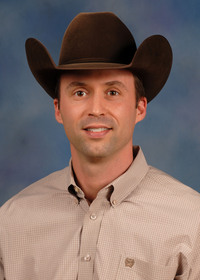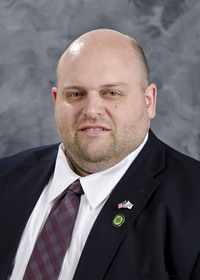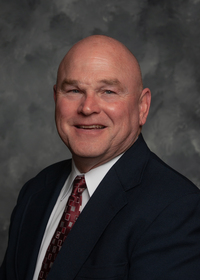Information Possibly Outdated
The information presented on this page was originally released on April 28, 2004. It may not be outdated, but please search our site for more current information. If you plan to quote or reference this information in a publication, please check with the Extension specialist or author before proceeding.
4-H horse program becomes way of life
MISSISSIPPI STATE -- Half a lifetime is a long time to commit to anything, but a 4-H horse program volunteer believes the program's benefits to families make his time well spent.
"I've been involved with the 4-H horse program for 35 years, and I raised four children in the 4-H program. Now I have grandchildren in 4-H," said Bobby Crawford of Indianola. "It's a wonderful program. I've contributed time and effort for half my lifetime, and I've enjoyed it so much."
Crawford said it would be difficult to count the number of hours he spends helping out with the program.
"Whatever time it takes is the time I spend helping, whether it be at night trying to get a judge for the state 4-H show or anything else that needs to be done," he said.
Crawford works directly with Gale Chrestman, Mississippi State University's Extension 4-H livestock specialist.
"Volunteers are a big part of the 4-H horse program. There's no way the Extension Service could keep its programs going without volunteers," Chrestman said. "Bobby Crawford has been part of the backbone of the 4-H horse program for many years, and he's been involved with other programs, like the state Open Horse Show."
Chrestman said he relies on volunteers to help out on the county, district, regional and even national levels. Volunteers are especially helpful on the county level because in many counties, Extension agents are not horse specialists. These agents rely on the knowledge and experience of horse program volunteers.
Youth in the 4-H horse program can take part whether they own a horse or not.
"There are those youth who are actively involved in showing horses, and there are those who have a backyard horse and really want to enjoy the horse, and learn more about the horse industry and the animal itself," Chrestman said. "We also have youth who don't have a horse but want to be involved with the program. Many of these youth participate in our non-riding contests, which include judging, horse bowl, individual and team demonstration, public speaking, hippology, horse art and horse photography competitions."
But Chrestman said the program teaches youth much more than how to judge or show a horse.
"As with all of our animal projects, the horse is simply a tool that we use to help develop life skills in these youth. Participants develop responsibility, respect, and decision-making, communication and other life skills," Chrestman said. "Kids who participate in 4-H programs have advantages over some kids who do not participate."
These benefits to children and their families keep Crawford inspired to help out with the 4-H program.
"During 4-H programs at night or on weekends, we have these children and we know where they are and what they're doing. We can keep the children involved with 4-H programs and keep them away from drugs, drinking and carrying on," Crawford said. "4-H is something we need to keep our children involved in -- not only the horse program, but all 4-H programs."
For information on opportunities to volunteer with 4-H programs, contact the local county Extension office.




